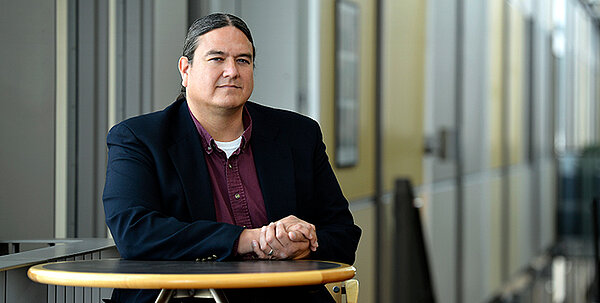
New research initiative aims to solve large-scale public health problems
Published September 30, 2016
A new initiative that builds on existing NDSU research is expected to help solve global public health problems by first addressing them on a local level.
The Population Health Research Initiative will establish a Doctor of Public Health degree program at NDSU, and launch other collaborative programs that combine different fields from six academic colleges. The goal is to increase NDSU’s ability to conduct more extensive and effective population health research.
It is part of the Grand Challenge Initiative, which is designed to use NDSU’s role as North Dakota’s land-grant, research university to create innovative research that will improve the lives of people in the state and around the world.
It is led by Dr. Donald Warne, chair of the Department of Public Health, associate professor of public health and Mary J. Berg Distinguished Professor of Women’s Health. He said factors that affect population health are multifaceted and can’t be adequately addressed through a single lens or by addressing a single health condition.

The NDSU Grand Challenge Initiative was developed to solve complex and evolving global issues with collaborative, interdisciplinary research. Dr. Donald Warne will lead a group of NDSU researchers to find solutions to local and global population health problems.
That’s why the research initiative will pull together partnerships within the College of Health Professions’ Department of Public Health; the College of Human Development and Education’s Department of Health, Nutrition and Exercise Sciences; the College of Agriculture, Food Systems and Natural Resources’ Department of Veterinary and Microbiological Sciences; the College of Business’s Master of Business Administration program; the College of Science and Math’s Department of Psychology; and the College of Arts, Humanities and Social Sciences’ Department of Sociology and Anthropology.
Additional faculty will be hired to conduct research. Proposed faculty lines, which include public health psychology, public health nutrition and indigenous food systems, are designed to promote high-level, interdisciplinary population health research with significant potential for large-scale impact, external funding, sustainability and growth of the NDSU research enterprise, Warne said.
“The primary focus is expanding research capacity,” Warne said. “Once implemented, it will have a measureable and direct impact on North Dakota, the region and the nation, in particular within indigenous populations. The research is globally important because it could help people live longer, healthier lives.”
Much of the research builds on studies already in progress. Diabetes research in indigenous populations is one example. Warne is a nationally renowned diabetes researcher. He spent three years as a staff clinician with the National Institutes of Health where he conducted diabetes research and developed diabetes education with prevention programs in partnership with tribes.
Kalidas Shetty, professor of plant metabolism and food security and director of the Global Institute of Food Security and International Agriculture, studies solutions to global food security challenges that impose the double burden of undernourishment and excess calories from hyper-processed foods. Both issues can afflict indigenous populations with chronic diseases such as diabetes. American Indians and Alaska Natives are 2.2 times more likely to have diabetes compared with non-Hispanic whites, according to the U.S. Department of Health and Human Services’ Indian Health Service.
Shetty is working with students pursuing master of public health degrees who are studying the nutritional qualities of traditional tribal foods. One project is looking for nutritional balance among foods, such as squash and beans, and then promoting their growth and distribution in gardens and farmers’ markets within native communities.
“Researching diverse food supplies helps address specific human health concerns on local levels,” Shetty said.
The initiative will be phased in over several years, but work is already underway, Warne said.
“I thank university leadership for recognizing our role as a land-grant institution in which we can use a coordinated and interdisciplinary approach to solving societal issues,” Warne said. “If we work across colleges we can make a bigger impact.”